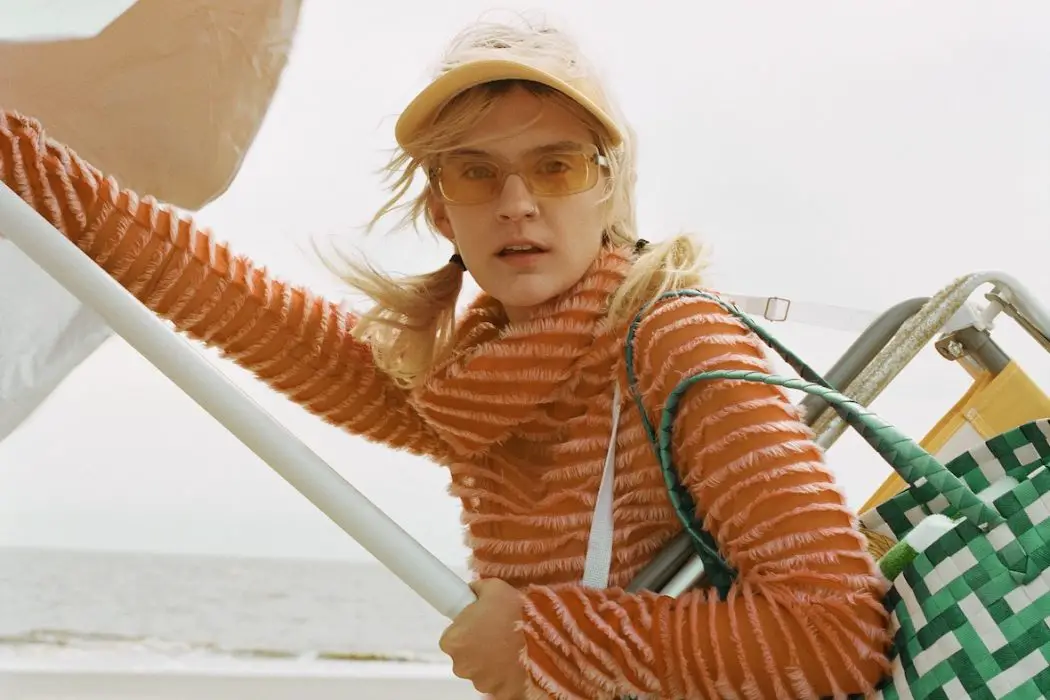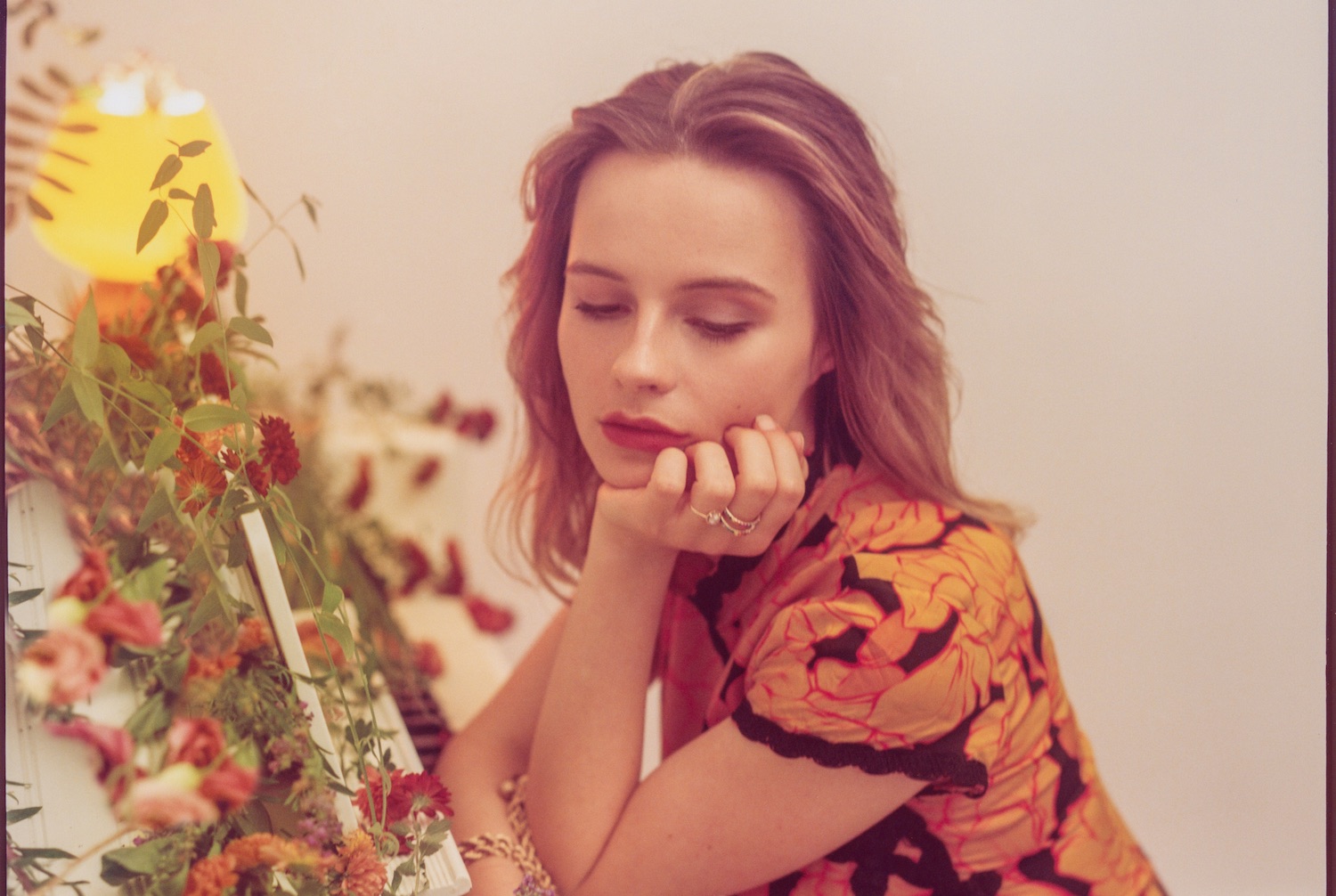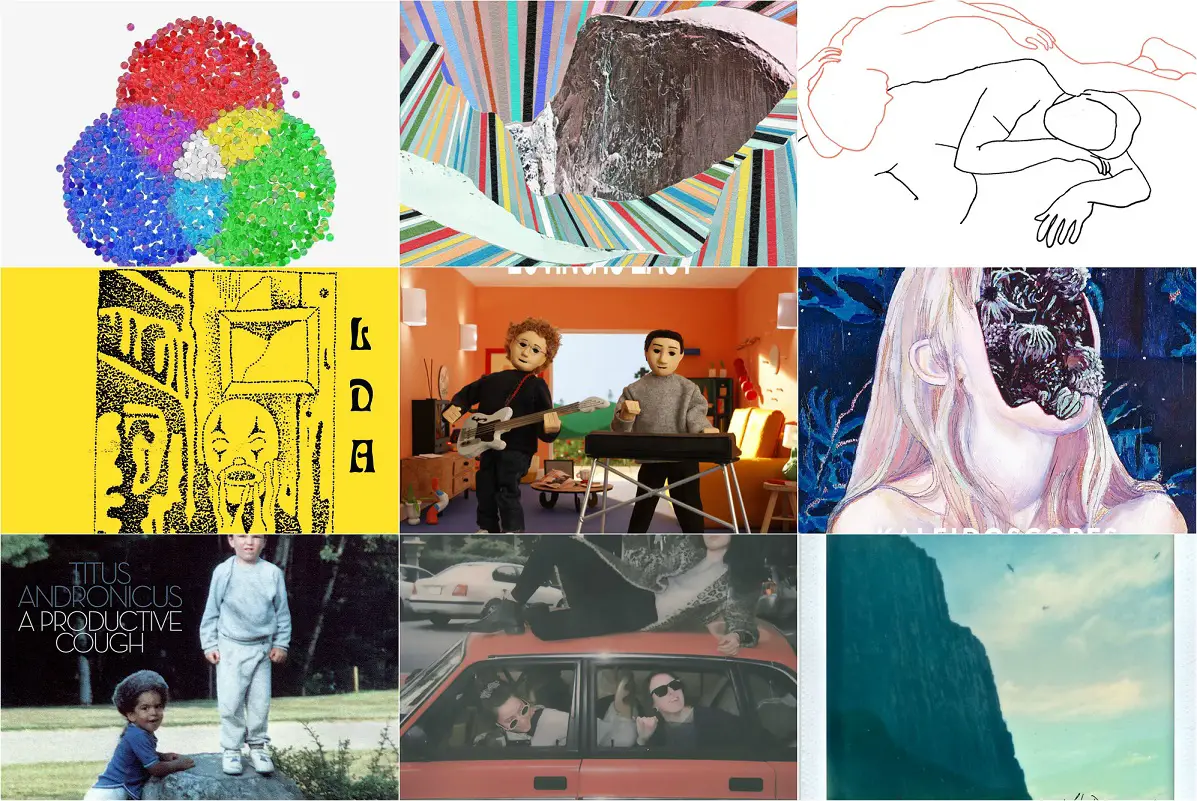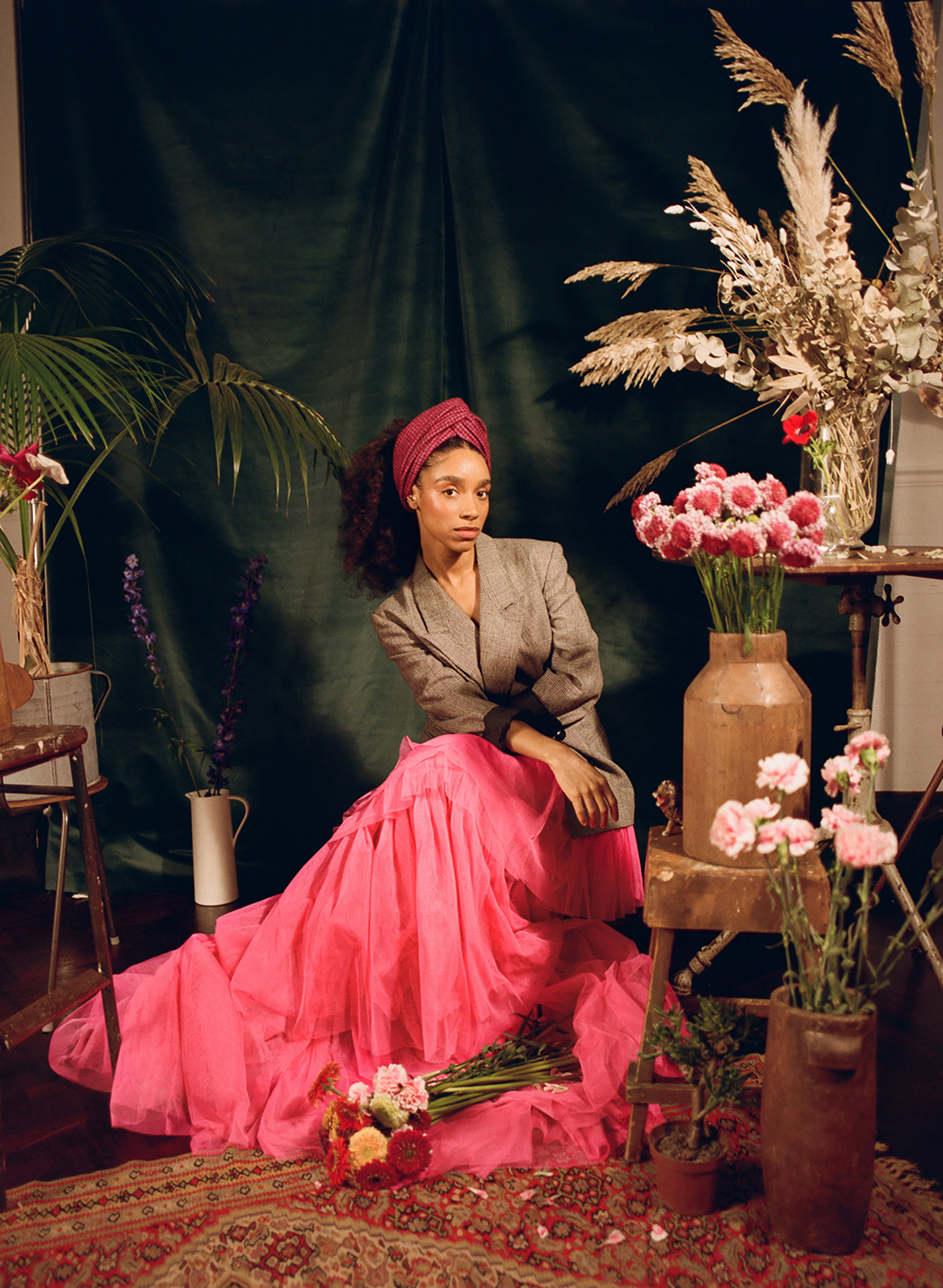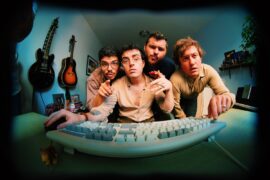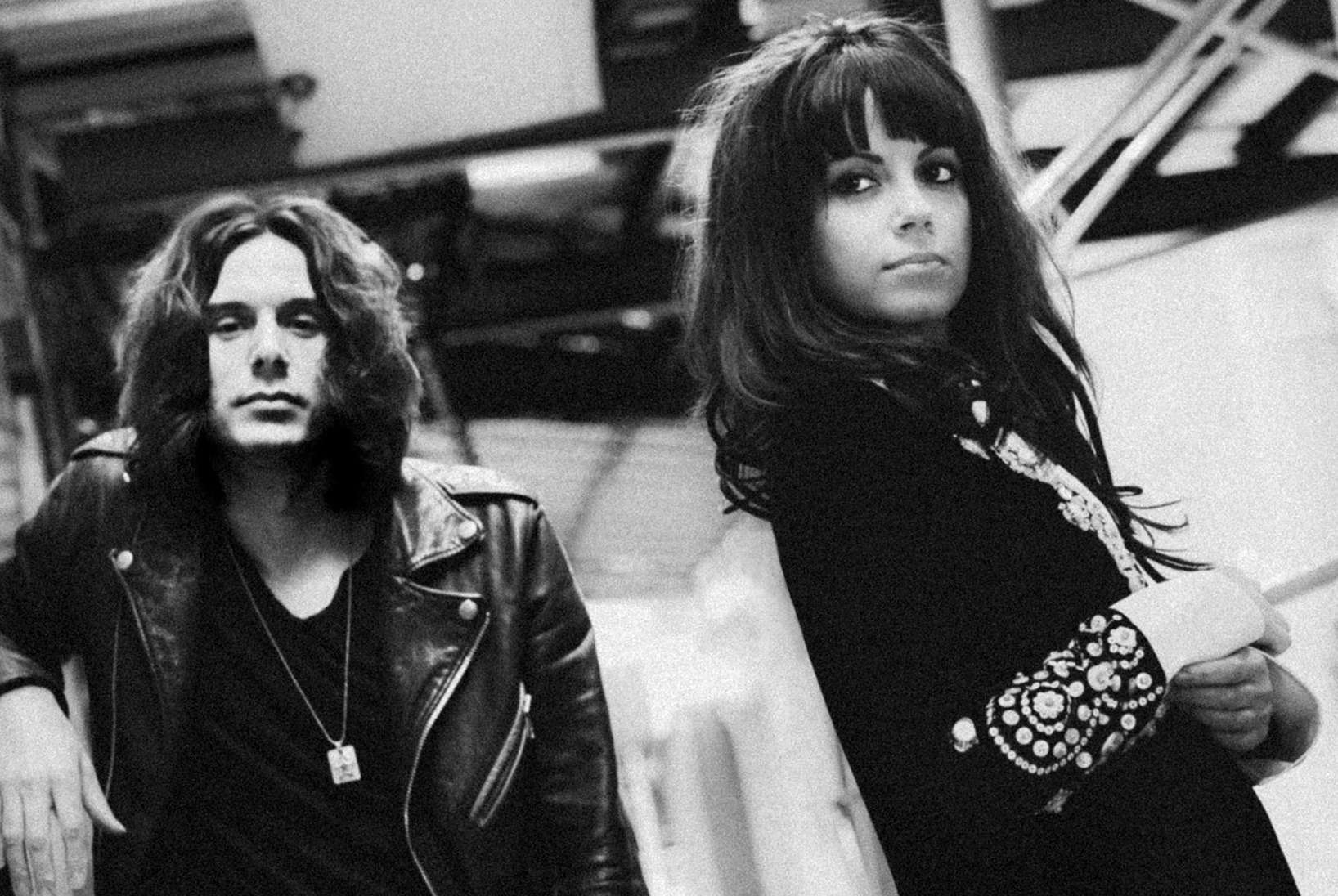Liza Anne’s fourth LP ‘Bad Vacation’ is an electric punk-rock summer record that takes bold ownership of her ability to learn and grow.
Stream: “Bad Vacation” – Liza Anne
Since 2014, Nashville-based artist Liza Anne has been steadily writing and releasing records: 2014’s dazzling folk debut, Colder Months, 2015’s dark and ethereal Two, 2018’s boldly honest Fine But Dying, and now, 2020’s vulnerable punk-rock Bad Vacation. And almost like sharpie marks on the wall of your childhood home, marking the ways in which you’ve grown, Liza Anne’s albums are well-loved notches on a beautiful journey of personal and musical growth.

Bad Vacation, out July 24, 2020 on Arts & Crafts, finds Liza Anne in a position of assurance, trusting herself to bring her song ideas to life and taking bold ownership of her self-awareness and emotional health. The opening track, “East Beach for 14 Seconds,” is a sound bite from the island she grew up on, beginning the album from a place of familiarity. That familiar space ushers in an electric moment of freedom on “Bad Vacation” that sustains, ebbing and flowing until the album’s end.
In the midst of a pandemic, the fight against racial injustice, and widespread uncertainty, Liza Anne hopes Bad Vacation might “be whatever you need to keep moving forward,” and I believe it’s a piece of art capable of doing just that.
Anne spoke with Atwood Magazine about those hopes, her favorite ways to practice self-care, and the exciting process of bringing Bad Vacation to life. Read about it in our conversation below!
— —
:: stream/purchase Bad Vacation here ::
Stream: ‘Bad Vacation’ – Liza Anne
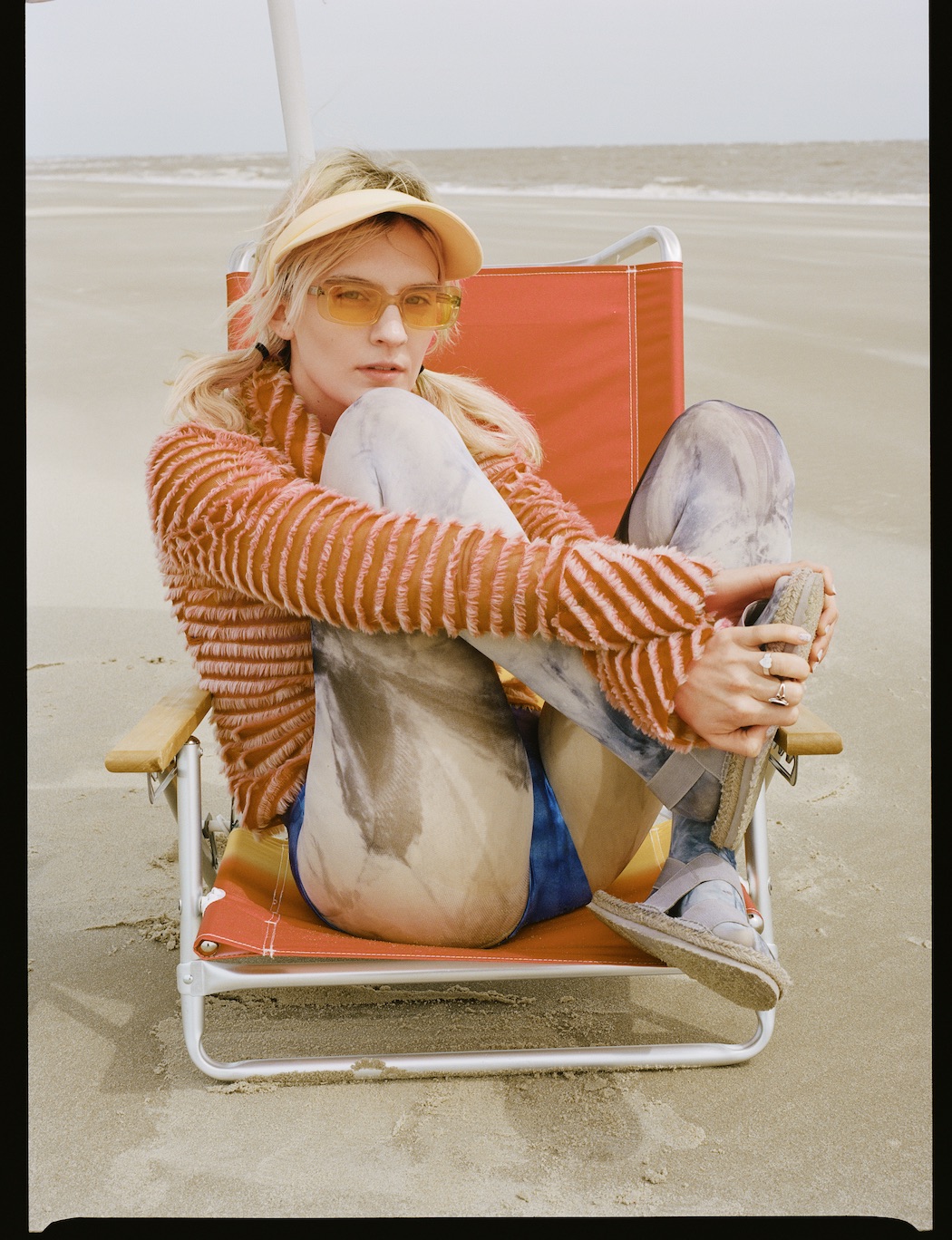
A CONVERSATION WITH LIZA ANNE
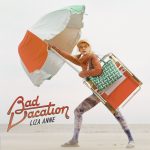
Atwood Magazine: Congrats on Bad Vacation! This is your fourth album since 2014, and it’s been exciting to watch your music continually evolve. What was the process of writing and recording Bad Vacation like in comparison to previous albums?
LIZA ANNE: I felt this a little bit with Fine But Dying, but definitely with Bad Vacation, this was the first time I felt extremely capable from a production and musician standpoint. I felt like I had all the tools I needed to actually achieve these ideas I had in my head, whereas before I was pretty reliant on filtering those ideas through another person. But I think that a lot of that was just having this weird belief like, “Oh, well, I’ll never be that good of a guitar player, or I’ll never be the best at this thing,” or whatever dialogue I was having internally. It was keeping me from really expanding, but I think Fine But Dying is where [I started thinking], “you know what, I can be the absolute best guitarist for my music that I need.” Bad Vacation felt like it was coming out of a solid structure, not just from me, but also from the band and the producers I worked with. It felt like we were all coming from a capability that was really unique to our collaborative space, but also for me personally. It felt very new.
That's exciting! I feel like that's something that comes from experience too, like you get closer and closer to that confidence level.
LIZA ANNE: Totally. Because where you start is just where you start, you know. I’ve grown as a person, as a guitar player, as a songwriter. And I think my music and recording techniques only speak to that.
Absolutely. And Bad Vacation also has more of a bold punk-rock sound than anything you’ve previously released. Are there any specific influences, musical or otherwise, that led to the progression of sound?
LIZA ANNE: I think it’s a combination of things. When I started touring full time, I experienced this expansion of musical knowledge of bands I had never heard of, but were staples for other people. When I was 22, I felt like I was going through this second childhood of music discovery. Like I had no idea who David Byrne was, or who the Talking Heads were until January of this year. So I feel like there’s this naivety to my music knowledge because of the sheltered area I grew up in, and I think in some ways, I felt that create a ceiling for me. But in other ways, I felt that to be this second chance at growth from an adult brain. So I think for this record, I was listening to so much Kate Bush, and these women and powerful beings who were breaking rules left and right. I’m really drawn to that.
Sonically and visually, Bad Vacation is a total summer record, yet lyrically, it’s rooted in the importance of mental health and self care. At what point in writing these songs did that theme shine through?
LIZA ANNE: From the very, very first moment, really. I write a lot of poetry as well, and I can’t remember if I wrote the poem “Bad Vacation” before I wrote, “Devotion,” but “Devotion” was the first song I wrote for the record. And so, I started off on the note of saving myself and freeing myself, and I think quickly after it became really apparent to me that [I wanted to] dive even more into emotional health as a narrative of healing and not a narrative of defeat, or excuses for why I might be a bad friend, or all the ways I was crutching on my mental and emotional health issues. With Bad Vacation, I wanted to explore what it would feel like to heal and come from a more empowered place.
There’s time for both things, though. I think Fine But Dying was my giving space to my own journey of being okay with my mental health. But then, if I’m just doing that, I end up sitting in a cyclic toxicity, and there’s no growth. I’m just this really self-aware person. But if you’re not doing anything with that self-awareness, it’s kind of empty.
Right. The opening track, ''East Beach for 14 Seconds'', feels like a grounding moment before the music begins, almost like a daily meditation. Was that the intention?
LIZA ANNE: I love that that’s how you took it! This is my favorite part about making a record, like you have this intention, and then you get to explore other corners of it just by the way other people perceive it. That’s amazing. So that sound is from the beach where I grew up, and when we were in the middle of making Bad Vacation in January, [I thought of] this Kate Bush song called “Watching You Without Me” that has field recordings of seagulls and beach sounds. I was referencing it for a vocal technique and I heard those seagulls and said, “Oh my God, we should try and make seagull sounds with the synth.” And then I thought, “No, I literally grew up on an island. I’m just going to text my mom, and while she’s on a beach walk, just have her record a few minutes of something.” So I just felt like creatively going back to my childhood where a lot of things were formed and learned so that I, as an adult, can actively be unforming and unlearning [in order to] grow myself. I wanted to start from childhood in that way.
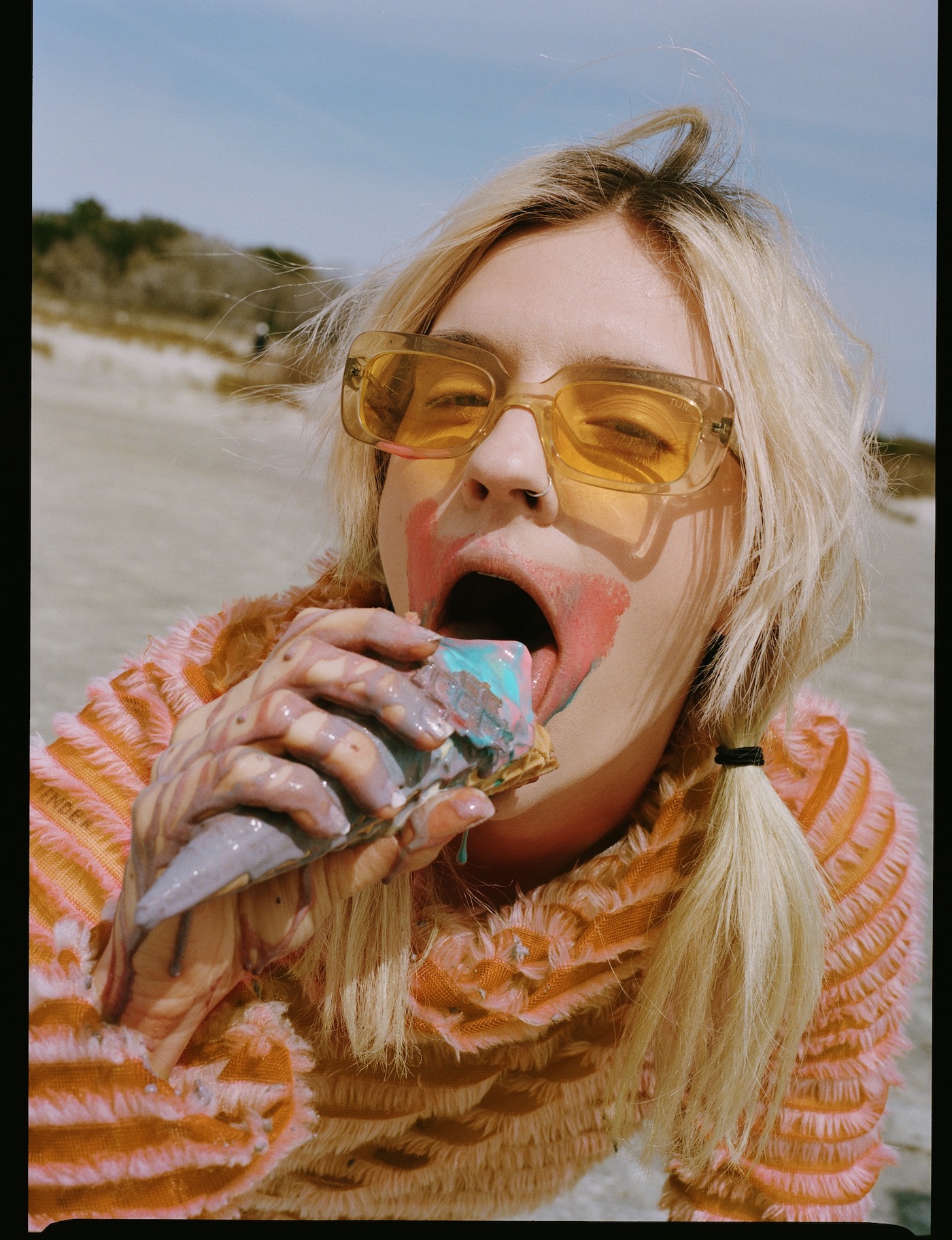
Oh wow, there’s such a power in doing that. One song on the record I really found myself in was “I Wanna Be There.” How did that song come about?
LIZA ANNE: I was in Thad Kopec’s basement where, to be honest, so many of my favorite songs on this record started. I think there’s something like spooky and good going on in that room! But I was over there just jamming with Josh [Gilligan] and Thad, messing around with the guitar parts, and I started exploring it lyrically with Josh and Kyle [Ryan] maybe a half year later. I feel like that song is such a special picture of collaboration because the song itself is about relationship with people. I love that “I Wanna Be There” came about through collaborating and communication and a bunch of different minds being involved, because it’s cataloguing the feeling of sitting close enough to someone to where their pain sort of starts to be your own pain, which is healthy and then sometimes not helpful.
Totally, I love a good friendship song. Listening through the album, there’s no mistaking Bad Vacation is your most confident record to date, with continual nods to self-acceptance. In the work of caring for yourself, what practices have been most helpful for you?
LIZA ANNE: I think a general one, but one that I really do stand behind, is therapy. Another one is sobriety, and then another one is just not being so hard on myself. Because sometimes when I have like plans for self care, like, to do yoga everyday, even just the plan for self care becomes a bit obsessive, and I get caught in this shame cycle where I turn my self care into a place where I can tear myself down. But I think the things that have been helpful [to get past] that shame cycle is therapy, being sober, and learning what it feels like to truly live in community with people, and to let people into my life and my psyche. And I mean the people really in my life; sometimes I feel like I have a false sense of closeness with people because my art is really intimate, but in my personal life [I can have] a million walls up around myself. So it’s been good to let people in.
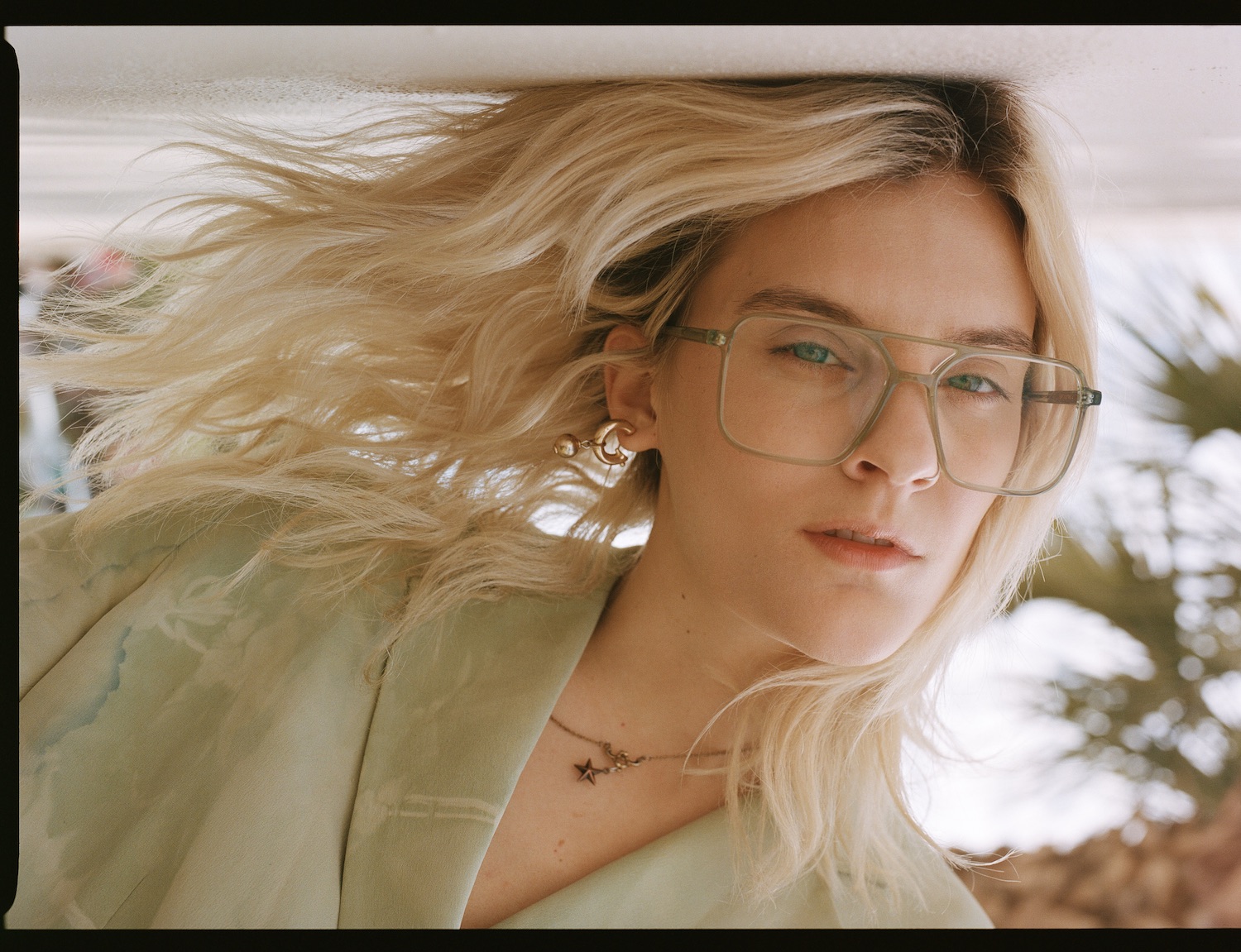
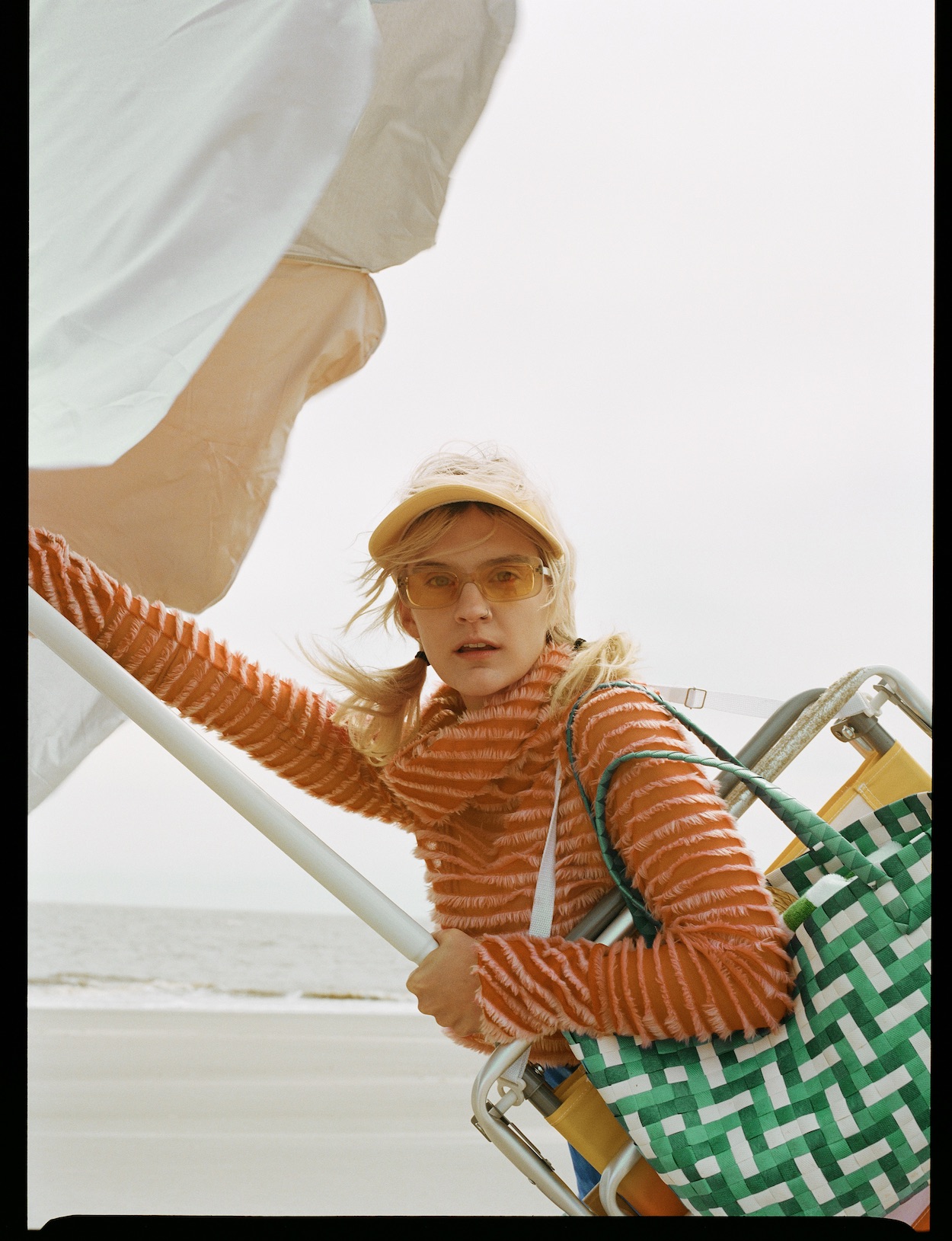
During the past several months, you’ve been doing weekly “Emotional Health Rallies” on Instagram where you go live with another artist. Tell me a little about how that idea started, and what those conversations have been like.
LIZA ANNE: They’ve been amazing. Going off of what I just said about the importance of letting people in and the reality that we grow in community with people, there’s a lot we can do internally in our own personal work, but there’s just something really important about sharing conversations about that personal work that I think kind of lets the cement dry a little bit on these things we’re trying to do for ourselves.
But I started [the Emotional Health Rallies] because I feel like I’ve learned so much about myself and about emotional and mental health in these really candid conversations with other bands when we’re on tour. Like we’ll be sitting in a green room miles and miles away from every form of creature comfort that home brings, and when you’re in that state where you’re just moving so much, there are these small moments of grounding that happen right before or right after a show. Sometimes I feel like all the secrets of the universe are held in those conversations I’ve had with other women and other bands I’ve toured with, and so I think I knew I was going to be missing tour and missing those conversations. So I wanted to create a space where other people can peer into that and try and grow. Also, I made a really dumb t-shirt for a tour year ago as a joke. And so, it really all started from a t-shirt!
That’s amazing! Lastly, as Bad Vacation makes its way into the world, what’s something you hope listeners might feel when they hear it in full?
LIZA ANNE: I hope that they feel whatever they’re needing to feel. I think so much of this year has reunited us with the idea of being present. We have all this time to be with ourselves, to work through things, to grow and learn. And I think releasing a record in the middle of a pandemic, in the middle of all the racial injustice that’s happening, in the middle of all the pain before this fucked up election, the main thing I want is for people to get whatever they need to keep moving forward. And I think it’s going to be different for everyone—I think for some people, they’ll resonate exactly with what I wrote down, and for other people, they might, just like you said earlier, hear the beach noises and have a quick grounding moment for themselves before they dive in and do more work. I think I just want it to be whatever anyone needs.
— —
:: stream/purchase Bad Vacation here ::
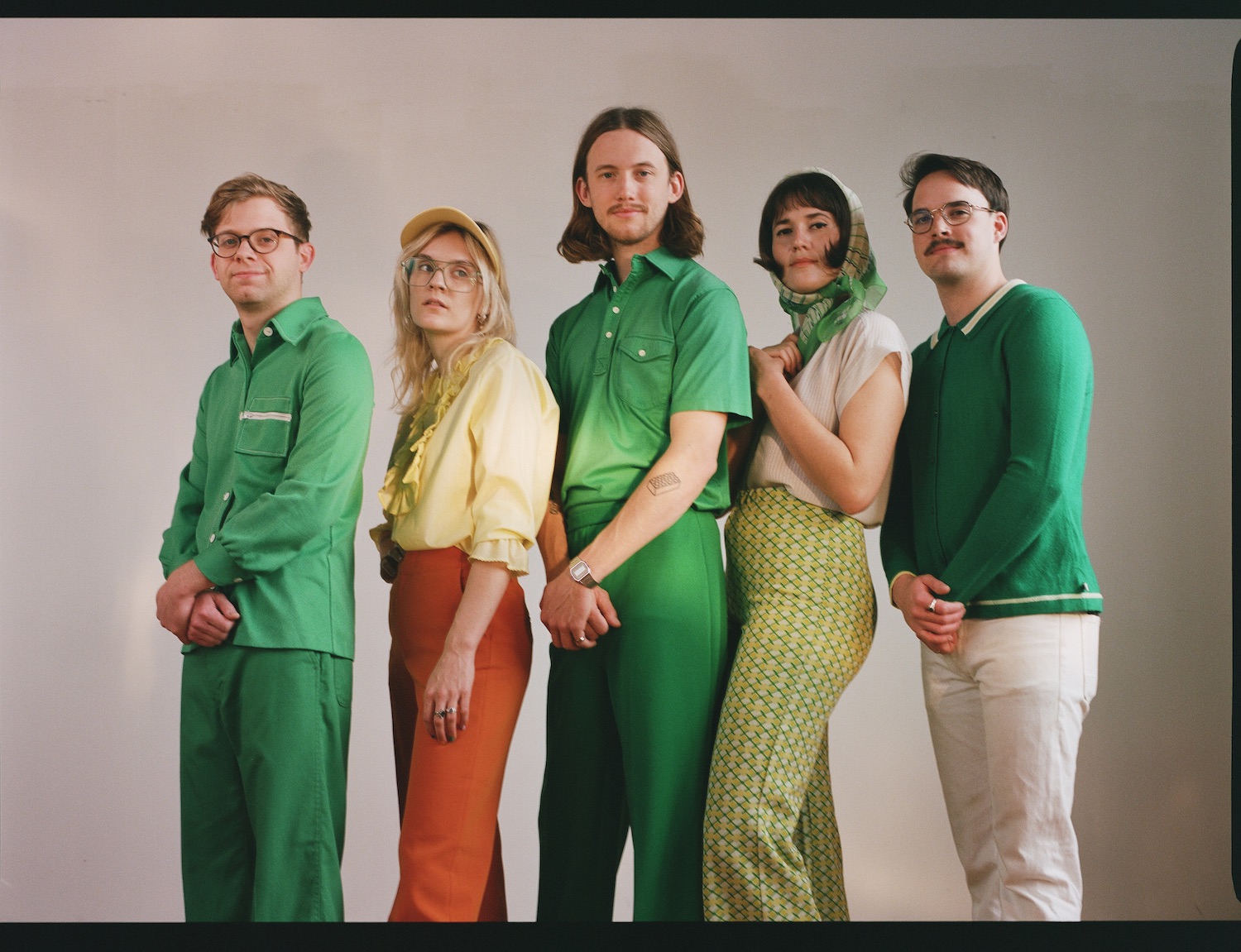
— — — —

Connect to Liza Anne on
Facebook, Twitter, Instagram
Discover new music on Atwood Magazine
? © Brett Warren
:: Stream Liza Anne ::

